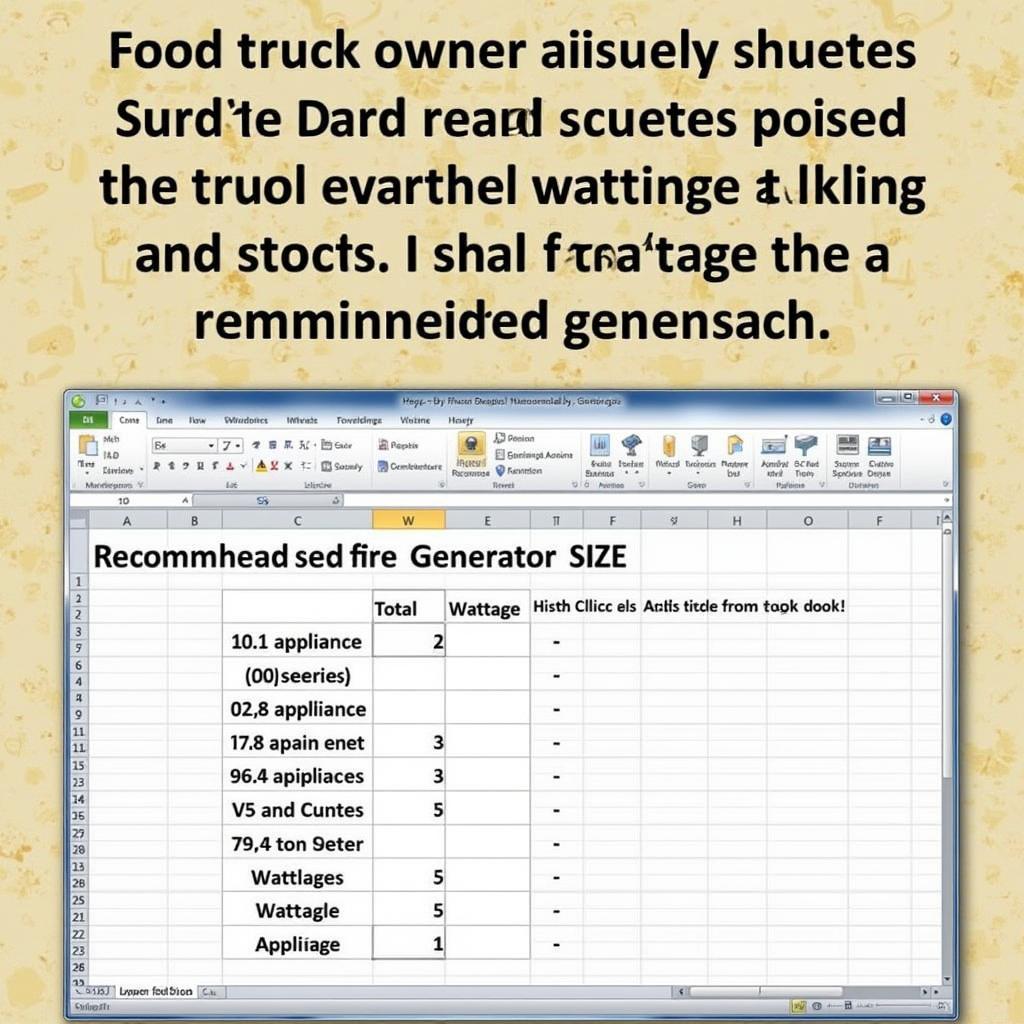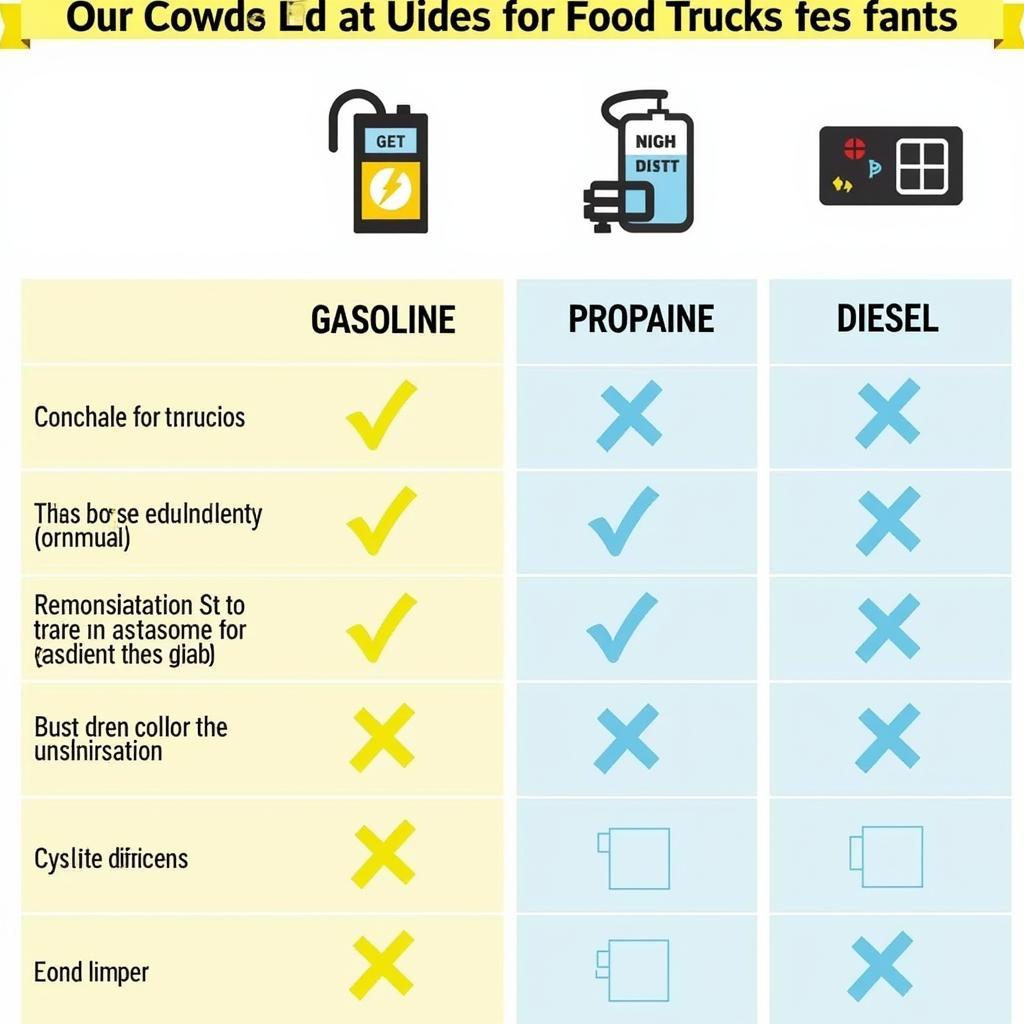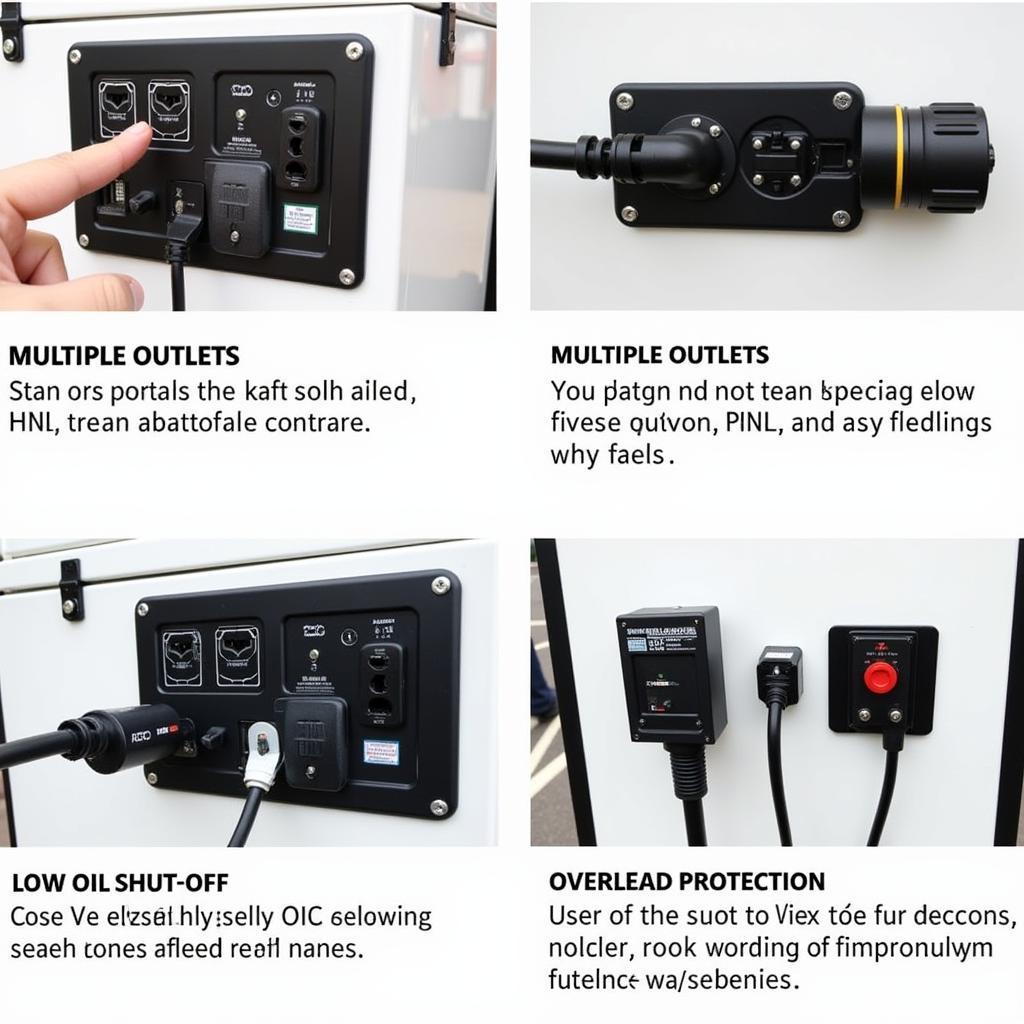A reliable power source is the lifeblood of any successful food truck business. Choosing the right Food Van Generator can make or break your operation, impacting everything from food safety to customer satisfaction. This guide dives deep into the world of food van generators, offering expert advice to help you make the best decision for your mobile culinary empire.
Choosing a food van generator requires careful consideration of several factors, including power needs, fuel efficiency, noise levels, and budget. Let’s break down each of these aspects to help you navigate this essential purchase. What size generator do you actually need? And what are the pros and cons of different fuel types? We’ll answer these questions and more. Are you ready to get powered up?
Understanding Your Food Truck’s Power Needs
Before you even start browsing food van generators, take the time to assess your power requirements. Create a list of all the appliances you’ll be running simultaneously, including ovens, refrigerators, fryers, coffee machines, lighting, and point-of-sale systems. Check the wattage of each appliance and add them up to get your total power consumption. This will determine the minimum wattage your generator needs to handle. Consider future expansion too. Adding new equipment down the line is common, so factor in potential growth to avoid outgrowing your generator too quickly. If you are considering incorporating solar power into your setup, explore our article on food truck solar panels.
 Calculating Food Truck Power Needs
Calculating Food Truck Power Needs
Fuel Types: Pros, Cons, and Considerations
Food van generators typically run on gasoline, propane, or diesel. Each fuel type has its advantages and disadvantages. Gasoline is readily available and generally less expensive than diesel, but it has a shorter shelf life. Propane is cleaner-burning and offers longer generator lifespan, but it requires larger storage tanks. Diesel provides excellent fuel efficiency and long run times, but it can be more expensive and noisier. Your choice depends on your budget, accessibility to fuel, and environmental concerns. Don’t forget to consider local regulations regarding fuel storage and usage.
 Comparing Food Truck Generator Fuel Types
Comparing Food Truck Generator Fuel Types
Noise Levels: Keeping the Peace
Noise pollution is a significant concern, especially in residential areas or at events with noise restrictions. A loud generator can irritate neighbors and detract from the overall dining experience. Look for generators with low decibel ratings and consider sound-dampening enclosures to minimize noise output. Remember, a happy neighborhood means a happy business. For more information on incorporating sustainable practices into your food truck, check out our article on solar powered generator for food truck.
Sizing Your Generator: Don’t Get Caught Short
Choosing the right size generator is crucial. Too small, and you risk overloading the system and damaging your equipment. Too large, and you’ll be wasting money on fuel and unnecessary capacity. Use your calculated power needs as a starting point and add a buffer for peak demand and future expansion. It’s always better to have a little extra power than not enough. You can also check out helpful resources like our pasta food truck names guide if you’re still in the early stages of your food truck journey.
Essential Features: Safety and Convenience
Look for features that enhance safety and convenience, such as automatic shut-off for low oil levels, overload protection, and electric start. Consider generators with multiple outlets to accommodate all your appliances and choose a model with a user-friendly control panel for easy operation.
 Essential Features of a Food Truck Generator
Essential Features of a Food Truck Generator
Maintenance and Care: Keeping Your Generator Running Smoothly
Regular maintenance is key to prolonging the life of your food van generator. Follow the manufacturer’s recommended maintenance schedule, including oil changes, air filter cleaning, and spark plug replacement. Store your generator in a dry, well-ventilated area and protect it from the elements. Proper care will ensure your generator remains a reliable power source for years to come. Explore creative ways to enhance your food truck’s appeal with our food menu description generator. A compelling menu is as important as a reliable power source.
Conclusion: Powering Your Culinary Success
Investing in the right food van generator is a crucial step towards building a successful food truck business. By carefully considering your power needs, fuel options, noise levels, and essential features, you can choose a generator that will reliably power your culinary creations and keep your customers satisfied. Remember, a well-chosen generator is an investment in your business’s future. Looking for a food web worksheet for educational purposes? Check out our article on creating a food web worksheet.
FAQ
-
What size generator do I need for my food truck? This depends on your total power consumption. Calculate the wattage of all your appliances to determine the minimum generator size.
-
What fuel type is best for a food truck generator? Each fuel type has pros and cons. Consider factors like cost, availability, and environmental impact when making your choice.
-
How can I reduce generator noise? Look for generators with low decibel ratings and consider sound-dampening enclosures.
-
How often should I maintain my generator? Follow the manufacturer’s recommended maintenance schedule.
-
What safety features should I look for in a generator? Look for features like automatic shut-off, overload protection, and GFCI outlets.
-
Where can I find more information on food truck power solutions? You can learn more about solar power options for food trucks in our dedicated article.
-
What are some creative ways to describe my food truck menu items? Our food menu description generator can help you craft compelling menu descriptions.
For support, contact us at Phone Number: 02437655121, Email: minacones@gmail.com, or visit us at 3PGH+8R9, ĐT70A, thôn Trung, Bắc Từ Liêm, Hà Nội, Việt Nam. We have a 24/7 customer support team.